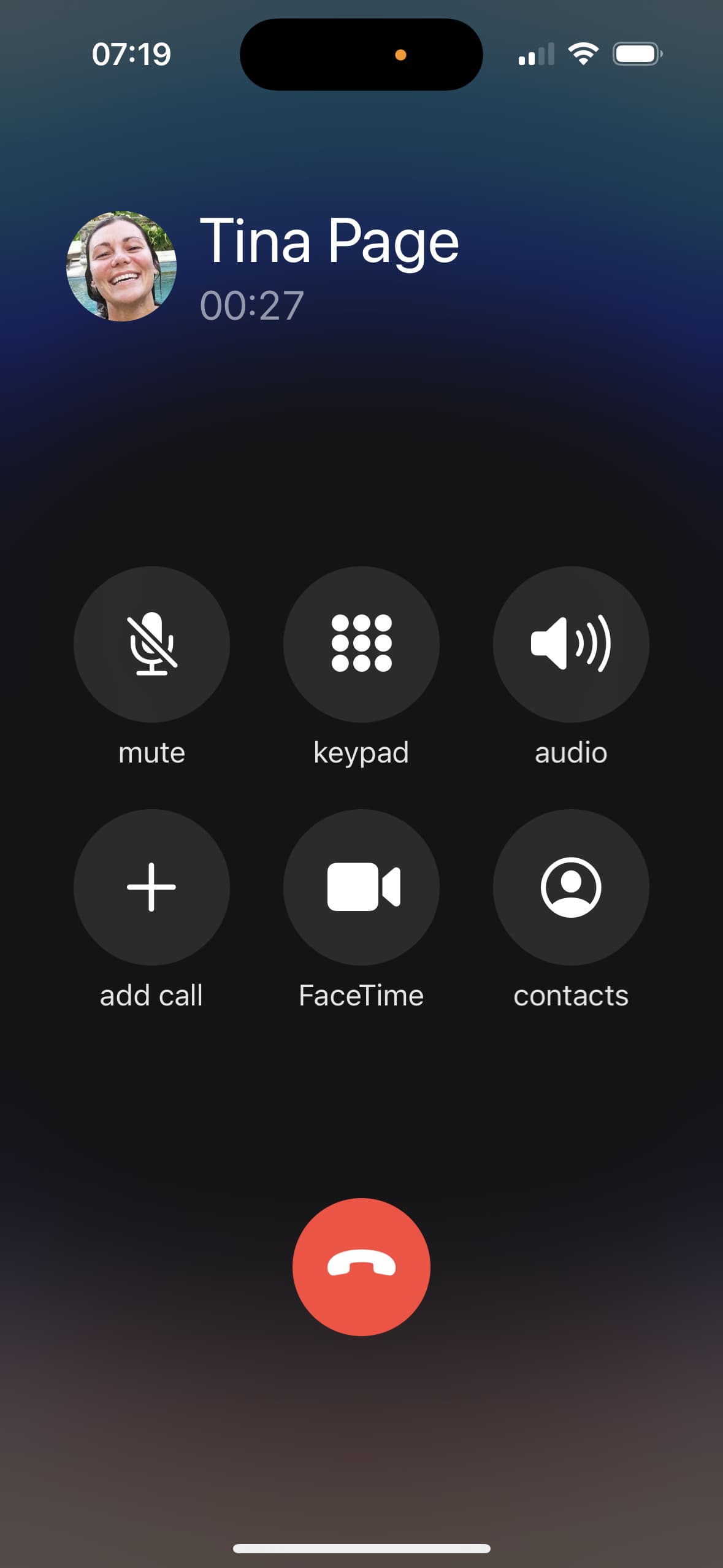Unlock Your Voice: Mastering The Call For Speakers
Are you passionate about sharing your expertise, igniting inspiration, and provoking thought within your community or industry? The opportunity to step onto a stage, virtual or physical, and share your unique insights often begins with a call for speakers. This pivotal invitation is the gateway for experts, innovators, and rising stars alike to contribute to the collective knowledge and shape the future of their respective fields.
Understanding and effectively responding to a call for speakers is an art and a science. It's about more than just having something to say; it's about aligning your message with the event's vision, demonstrating your unique value, and navigating a structured submission process. Whether you're aiming to speak at a global conference like PMI's annual events, contribute to the HR community at SHRM, or share ethical compliance insights with SCCE, mastering this process can unlock unparalleled opportunities for professional growth and impact.
Table of Contents
- What Exactly is a Call for Speakers?
- Why Answer the Call for Speakers? Igniting Inspiration and Impact
- Navigating the Speaker Proposal Process: From Idea to Submission
- Benefits of Stepping into the Spotlight: More Than Just a Platform
- Key Considerations Before You Apply: Due Diligence is Key
- Finding the Right Call for Speakers Opportunities
- Beyond Submission: What Happens Next?
- Making a Lasting Impact as a Speaker
What Exactly is a Call for Speakers?
A call for speakers is an open invitation from event organizers, conferences, or associations for individuals to submit proposals for presentations, workshops, or keynotes. It's their way of sourcing diverse, high-quality content that aligns with their event's theme and objectives. As the data highlights, "A call for speakers typically includes information about the theme or focus of the event, the types of sessions or presentations that are being looked for, and the deadline for submitting proposals." This means it's not a generic request; it's a targeted search for specific expertise. These calls are crucial for events looking to offer fresh perspectives and cutting-edge insights. For instance, SHRM, a leading HR professional organization, actively seeks HR practitioners to help shape their annual conference experience, aiming to include "even more insights, perspectives and advice from practitioners—those doing the work, day in and day out—in the program." Similarly, PMI brings together "renowned thought leaders, groundbreaking innovators, and seasoned practitioners to share transformative insights that define the future of project management." The goal is always to encourage a diverse range of voices and expertise, from seasoned experts to rising stars.Why Answer the Call for Speakers? Igniting Inspiration and Impact
Responding to a call for speakers offers a multitude of benefits, both personal and professional. First and foremost, it provides a platform to "share your story and inspire others." This goes beyond mere knowledge transfer; it's about connecting with an audience, sparking new ideas, and potentially influencing the trajectory of an industry. Organizations like SCCE invite ethics and corporate compliance professionals to "serve as conference speakers, session facilitators, and presenters," recognizing the profound impact these voices can have on professional standards and practices. Beyond altruism, speaking at events significantly boosts your professional profile. It establishes you as a thought leader, enhances your credibility, and expands your professional network. For those looking to make a real difference, a speaking engagement is an unparalleled opportunity to showcase your strategies and experiences. Whether you're a "seasoned expert or a rising star," these platforms invite you to join in sharing insights that can provoke thought and spark innovation within communities like the HR community. It's a chance to contribute to a larger conversation, attract new opportunities, and solidify your reputation as an authority in your field.Navigating the Speaker Proposal Process: From Idea to Submission
The journey from identifying a call for speakers to delivering your presentation is meticulous. It begins with a thorough understanding of the event and culminates in a compelling proposal. The process is often streamlined through a "speaker management system," ensuring efficiency and fairness in evaluation.Understanding Event Themes and Formats
Before even thinking about your topic, delve deep into the event's core. "A call for speakers typically includes information about the theme or focus of the event, the types of sessions or presentations that are being looked for." This is your blueprint. Is the event seeking keynote speakers, breakout session presenters, or panel facilitators? Some events, as noted, "have a call for keynote speakers that is separate from the call for guest speakers for breakout sessions." Understanding this distinction is vital. For example, if you're learning "how to submit proposals for speaking at SHRM events, including the annual conference & expo and inclusion," you'll need to "find out the deadlines, formats, benefits, and requirements for each event and topic." This level of detail ensures your proposal is perfectly aligned. Events like ESSAE are "always looking for great speakers and presenters" and often provide a list of "annual recurring opportunities," with a frequent focus on topics aligning with CAE (Certified Association Executive) competencies. This specificity helps you tailor your content to meet the organizers' precise needs.Crafting a Winning Proposal
Once you understand the event's needs, the next step is to craft a proposal that stands out. This is where your expertise meets strategic communication. Your proposal should clearly articulate: * **Your Topic:** Is it relevant to the event's theme? Does it offer fresh insights? * **Learning Objectives:** What will the audience gain from your session? How will it help them? * **Your Expertise:** Why are you the best person to deliver this content? Showcase your unique experience and knowledge. * **Engagement Strategy:** How will you make the session interactive and memorable? The submission process for many organizations, such as PMI, allows applicants to "propose one continuing education (CE) course per event for evaluation and consideration." It's important to note, however, that "by completion of this application, applicants are not guaranteed a speaking opportunity." This underscores the competitive nature of these calls. Proposals are often "peer and expert reviewed for final selection," ensuring that only the most relevant and high-quality content makes it to the final program. Focus on clarity, conciseness, and demonstrating the tangible value your session will bring to the attendees.Benefits of Stepping into the Spotlight: More Than Just a Platform
Beyond the immediate gratification of sharing knowledge, the benefits of responding to a call for speakers are far-reaching and impactful. Speaking at an event positions you as an authority in your field. When you share your insights and experiences, you're not just presenting information; you're building a reputation as a thought leader. This can open doors to new consulting opportunities, partnerships, or even career advancements. Networking is another significant advantage. Conferences and events are melting pots of professionals, peers, and potential collaborators. As a speaker, you gain enhanced visibility, making it easier to connect with influential individuals. Attendees often seek out speakers for deeper discussions, leading to valuable professional relationships. Furthermore, the act of preparing and delivering a presentation hones your communication, public speaking, and critical thinking skills, which are invaluable in any professional setting. The opportunity to "share your story and inspire others" is a powerful motivator, offering personal fulfillment alongside professional growth.Key Considerations Before You Apply: Due Diligence is Key
Before you enthusiastically hit "submit" on your proposal, it's crucial to conduct thorough due diligence. A call for speakers is a two-way street; while they are looking for you, you should also assess if the opportunity aligns with your goals and values.Deadlines and Requirements
The first practical step is to "find out the deadlines, formats, benefits, and requirements for each event and topic." Missing a deadline, even by an hour, can disqualify your submission. Pay close attention to the specific format requirements: is it a 20-minute lightning talk, a 60-minute interactive workshop, or a full-day masterclass? Each format demands a different approach to content structuring and delivery. Also, consider specific speaker preferences. For instance, "SCCE members are preferred for speaking slots," indicating that membership in certain organizations might give you an edge. Some events might explicitly ask, "are you looking for local speakers?" or specify the type of keynote speaker they are seeking, such as "funny keynote speaker, inspirational keynote speakers, celebrity speakers or industry experts." Understanding these nuances will help you tailor your application effectively and increase your chances of selection.Compensation and Logistics
It's important to clarify the practicalities. "Do they pay for registration?" is a common and valid question. Some events might offer complimentary registration, while others might expect speakers to cover their own costs. For virtual events, like "attend SHRM25 virtually — no travel needed," logistics are simpler, but for in-person events, inquire about travel stipends, accommodation, and any speaker honorariums. Understanding these logistical details upfront can help you manage expectations and budget accordingly. While the primary motivation for speaking is often thought leadership and networking, being aware of the financial and logistical support provided by the event organizers is a sensible part of your decision-making process.Finding the Right Call for Speakers Opportunities
Identifying the ideal call for speakers can feel like searching for a needle in a haystack, but several resources can streamline the process. Many professional associations, like ESSAE, consistently seek content leaders and provide "a list of some of those annual recurring opportunities" on their event calendars. Organizations like PMI also host an "annual open call for speakers," inviting broad participation. Specialized directories and platforms are invaluable. Some services allow you to "purchase the plan of your preference to access our directory of calls for speakers," providing a centralized hub for various opportunities. Additionally, industry-specific newsletters, professional networks, and event websites frequently publish their open calls. For example, you might find a list of "all the events which are looking for a speaker for their upcoming event" compiled by dedicated teams, often updated biweekly, making it easier to "apply to show your interest at any of these events." Keeping an eye on these channels ensures you don't miss out on relevant opportunities to share your expertise.Beyond Submission: What Happens Next?
Submitting your proposal for a call for speakers is just the first step. The period between submission and notification can vary widely, from a few weeks to several months, depending on the event's scale and review process. During this time, your proposal undergoes a rigorous evaluation. As noted, "the submission process is streamlined through our speaker management system and all proposals are peer and expert reviewed for final selection." This multi-layered review ensures that only the most relevant, innovative, and well-articulated proposals are selected. Event organizers are looking for content that will resonate with their audience, offer actionable insights, and align perfectly with their event's theme. They also consider the speaker's experience and ability to engage. Remember the point that "by completion of this application, applicants are not guaranteed a speaking opportunity." This is a competitive landscape, and not every excellent proposal can be accommodated. If selected, you'll typically receive an acceptance notification with further instructions on preparing your presentation, technical requirements, and logistical details. If not selected, consider it a learning experience; ask for feedback if possible, and refine your approach for future calls.Making a Lasting Impact as a Speaker
Being selected to speak at an event is a significant achievement, but the true measure of success lies in the impact you make. Event organizers are "calling on speakers who embody these values, who are ready to ignite inspiration, provoke thought, and spark innovation." Your role extends beyond merely delivering information; it's about connecting with your audience, fostering engagement, and leaving them with actionable insights or a new perspective. Whether you're sharing transformative insights at a global PMI event or providing practical advice to HR practitioners at SHRM, your presentation should be designed to resonate. TED, for instance, seeks out "emerging artists, scientists and thinkers, introducing them to the TED community well before they hit the mainstream," emphasizing the value of fresh perspectives and compelling storytelling. Your ability to "share your story and inspire others" is paramount. A truly impactful speaker not only imparts knowledge but also empowers their audience to think differently, apply new strategies, and ultimately, make a real difference in their own professional lives. This enduring influence is the ultimate reward of answering the call for speakers.In conclusion, responding to a call for speakers is a powerful way to elevate your professional standing, expand your network, and contribute meaningfully to your industry. By meticulously understanding event requirements, crafting compelling proposals, and preparing to deliver an impactful presentation, you can unlock incredible opportunities. Don't let the chance to share your unique voice pass you by. Explore the open applications, refine your message, and step into the spotlight. What insights will you share that could ignite inspiration and provoke thought in others?
Have you ever responded to a call for speakers? What was your experience like? Share your thoughts and tips in the comments below!



Detail Author:
- Name : Jodie Veum
- Username : orlando55
- Email : muller.yesenia@yahoo.com
- Birthdate : 1994-05-16
- Address : 31022 Balistreri Spring Apt. 031 Ernserberg, NC 99798-0473
- Phone : +1-469-869-0408
- Company : Kuhn-Willms
- Job : Offset Lithographic Press Operator
- Bio : Unde quo et nostrum soluta voluptatibus. Sit molestiae qui doloribus. Quia non expedita quidem rerum ut inventore voluptatum. Incidunt officiis totam libero quasi sit harum.
Socials
twitter:
- url : https://twitter.com/urbankassulke
- username : urbankassulke
- bio : Fugiat ut quia exercitationem nobis id dolorem deleniti. Eaque et minus enim sint nobis. Voluptatum animi repudiandae qui sed et eveniet. Non aut incidunt aut.
- followers : 2451
- following : 50
linkedin:
- url : https://linkedin.com/in/urban9100
- username : urban9100
- bio : Est voluptatum commodi unde esse qui quae veniam.
- followers : 146
- following : 1342
tiktok:
- url : https://tiktok.com/@urban.kassulke
- username : urban.kassulke
- bio : Ea hic ea iste molestiae ad. Unde dolorem sed magni non quia fugit repellendus.
- followers : 2387
- following : 1838